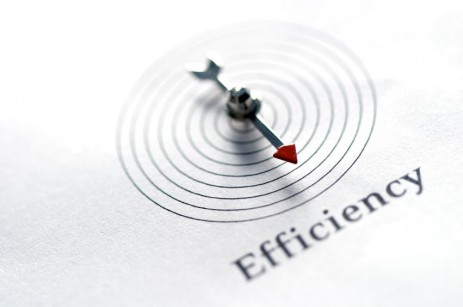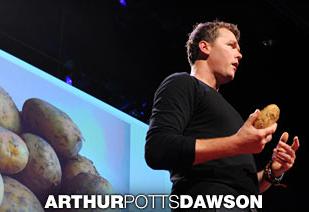One of the most penetrating critiques of energy-efficiency dogma you’ll ever read is in this week’s New Yorker (yes, the New Yorker). “The efficiency dilemma,” by David Owen, has this provocative subtitle: “If our machines use less energy, will we just use them more?” Owen’s answer is a resounding, iconoclastic, and probably correct Yes.
Owen’s thesis is that as a society becomes more energy efficient, it becomes downright inefficient not to use more. The pursuit of efficiency is smart for individuals and businesses but a dead end for energy and climate policy.
This idea isn’t wholly original. It’s known as the Jevons paradox, and it has a 150-year history of provoking bursts of discussion before being repressed from social consciousness. What Owen adds to the thread is considerable, however: a fine narrative arc; the conceptual feat of elevating the paradox from the micro level, where it is rebuttable, to the macro, where it is more robust; a compelling case study; and the courage to take on energy-efficiency guru Amory Lovins. Best of all, Owen offers a way out: raising fuel prices via energy taxes.
Thirty-five years ago, when the energy industry first ridiculed efficiency as a return ticket to the Dark Ages, it was met with a torrent of smart ripostes like the Ford Foundation’s landmark “A Time to Choose” report — a well-thumbed copy of which adorns my bookshelf. Since then, the cause of energy efficiency has rung up one triumph after another: refrigerators have tripled in thermodynamic efficiency, energy-guzzling incandescent bulbs have been booted out of commercial buildings, and developers of trophy properties compete to rack up LEED points denoting low-energy design and operation.
Yet it’s difficult to see that these achievements have had any effect on slowing the growth in energy use. U.S. electricity consumption in 2008 was double that of 1975, and overall energy consumption was up by 38 percent. True, during this time U.S. population grew by 40 percent, but we also outsourced much of our manufacturing to Asia. In any case, efficiency, the assertedly immense resource that lay untapped in U.S. basements, garages, and offices, was supposed to slash per capita energy use, not just keep it from rising. Why hasn’t it? And what does that say for energy and climate policy?
A short form of the Jevons paradox, and a good entry point for discussing it, is the “rebound effect” — the tendency to employ more of something when efficiency has effectively cut its cost. The rebound effect is a staple of transportation analysis, in two separate forms. One is the rebound in gallons of gas consumed when fuel-efficiency standards have reduced the fuel cost to drive a mile. The other is the rebound from the reduction in car trips after imposition of a road toll, now that the drop in traffic has made it possible to cover the same ground in less time.
Rebound effect one turns out to be small. As UC-Irvine economics professor Ken Small has shown, no more than 20 percent of the gasoline savings from improved engine efficiency have been lost to the tendency to drive more miles — and much less in the short term. Rebound effect two is more significant and becoming more so, as time increasingly trumps money in the decision-making of drivers, at least better-off ones.
Rebound effects, then, vary in magnitude from one sector to another. They can be tricky to analyze, as Owen unwittingly demonstrated in an ill-considered 2009 Wall Street Journal op-ed criticizing congestion pricing, “How traffic jams help the environment.” He wrote:
If reducing [congestion via a toll] merely makes life easier for those who drive, then the improved traffic flow can actually increase the environmental damage done by cars, by raising overall traffic volume, encouraging sprawl and long car commutes.
Not so, as I wrote in “Paradox, schmaradox. Congestion pricing works”:
When the reduction in traffic is caused by a congestion charge, life is not just easier for those who continue driving but more costly as well. Yes, there’s a seesaw between price effects and time effects, but setting the congestion price at the right point will rebalance the system toward less driving, without harming the city’s economy.
More importantly, as Owen points out in his New Yorker piece, a narrow “bottom up” view — one that considers people’s decision-making in isolated realms of activity one-by-one — tends to miss broader rebound effects. On the face of it, doubling the efficiency of clothes washers and dryers shouldn’t cause the amount of laundering to rise more than slightly. But consider: 30 years ago, an urban family of four would have used the washer-dryer in the basement or at the laundromat, forcing it to “conserve” drying to save not just quarters but time traipsing back and forth. Since then, however, efficiency gains have enabled manufacturers to make washer-dryers in apartment sizes. We own one, and find ourselves using it for “spot” situations — emergencies that aren’t really emergencies, small loads for the item we “need” for tomorrow — that add more than a little to our total usage. And who’s to say that the advent of cheap and rapid laundering hasn’t contributed to the long-term rise in fashion-consumption, with all it implies for increased energy use through more manufacturing, freight hauling, retailing, and advertising?
Owen offers his own big example. Interestingly, it’s not computers or other electronic devices. It’s cooling. In an entertaining and all-too-brief romp through a half-century of changing mores, he traces the evolution of refrigeration and its “fraternal twin,” air conditioning, from rare, seldom-used luxuries then, to ubiquitous, always-on devices today:
My parents’ [first fridge] had a tiny, uninsulated freezer compartment, which seldom contained much more than a few aluminum ice trays and a burrow-like mantle of frost … The recently remodeled kitchen of a friend of mine contains an enormous side-by-side refrigerator, an enormous side-by-side freezer, and a drawer-like under-counter mini-fridge for beverages. And the trend has not been confined to households. As the ability to efficiently and inexpensively chill things has grown, so have opportunities to buy chilled things — a potent positive-feedback loop. Gas stations now often have almost as much refrigerated shelf space as the grocery stores of my early childhood; even mediocre hotel rooms usually come with their own small fridge (which, typically, either is empty or — if it’s a minibar — contains mainly things that don’t need to be kept cold), in addition to an icemaker and a refrigerated vending machine down the hall.
Air conditioning has a similar arc, ending with Owen’s observation that “access to cooled air is self-reinforcing: to someone who works in an air-conditioned office, an un-air-conditioned house quickly becomes intolerable, and vice versa.”
If Owen has a summation, it’s this:
All such increases in energy-consuming activity [driven by increased efficiency] can be considered manifestations of the Jevons paradox. Teasing out the precise contribution of a particular efficiency improvement isn’t just difficult, however; it may be impossible, because the endlessly ramifying network of interconnections is too complex to yield readily to empirical, mathematics-based analysis. [Emphasis mine.]
Defenders of efficiency will call “endlessly ramifying network” a cop-out. I’d say the burden is on them to prove otherwise. Based
on the aggregate energy data mentioned earlier, efficiency advocates have been winning the micro battles but losing the macro war. Through engineering brilliance and concerted political and regulatory advocacy, we have increased energy-efficiency in the small while the society around us has grown monstrously energy-inefficient and cancelled out those gains. Two steps forward, two steps back.
I wrote something roughly similar five years ago in a broadside against my old colleague, Amory Lovins:
[T]hough Amory has been evangelizing “the soft path” for thirty years, his handful of glittering successes have only evoked limited emulation. Why? Because after the price shocks of the 1970s, energy became, and is still, too darn cheap. It’s a law of nature, I’d say, or at least of Economics 101: inexpensive anything will never be conserved. So long as energy is cheap, Amory’s magnificent exceptions will remain just that. Thousands of highly-focused advocacy groups will break their hearts trying to fix the thousands of ingrained practices that add up to energy over-consumption, from tax-deductible mortgages and always-on electronics to anti-solar zoning codes and un-bikeable streets. And all the while, new ways to use energy will arise, overwhelming whatever hard-won reductions these Sisyphean efforts achieve.
I wrote that a day or two after inviting Lovins to endorse putting carbon or other fuel taxes front-and-center in energy advocacy. He declined, insisting that “technical efficiency” could be increased many-fold without taxing energy to raise its price. Of course it has, can, and will. But is technical efficiency enough? Owen asks us to consider whether a strategy centered on technical and regulatory measures to boost energy efficiency may be inherently unsuited for the herculean task of keeping coal and other fossil fuels safely locked in the ground.
I said earlier that Owen offers an escape from the Jevons paradox, and he does: “capping emissions or putting a price on carbon or increasing energy taxes.” It’s hardly a clarion call, and it’s not the straight carbon taxers’ line. But it’s a lifeline.
The veteran English economist Len Brookes told Owen:
When we talk about increasing energy efficiency, what we’re really talking about is increasing the productivity of energy. And, if you increase the productivity of anything, you have the effect of reducing its implicit price, because you get more return for the same money — which means the demand goes up.
The antidote to the Jevon paradox, then, is energy taxes. We can thank Owen not only for raising a critical, central question about energy efficiency, with potential ramifications for energy and climate policy, but for giving us a brief — an eloquent and powerful one — for a carbon tax.



